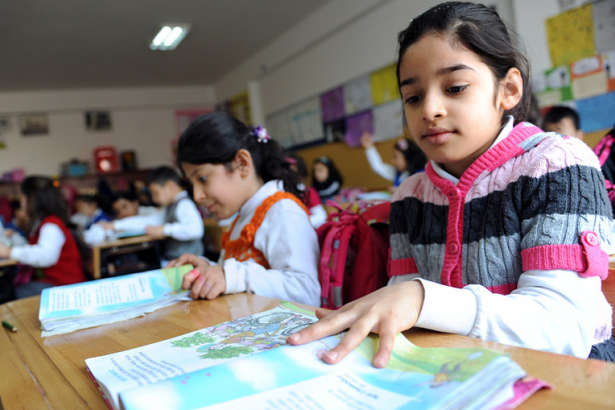Parents gathering against compulsory religion lessons

A group of progressive parents who has become alarmed by compulsory religion lessons being harmful for their children took the action to enable their children to be exempt from the obscurant execution. In consequence of the discussion and meetings leaded by the call and support of the Enlightenment Movement in certain primary schools in Kadıköy, Istanbul, a group of parents initiated the procedures in order to have their children not taking the religion lessons.
On Saturday, 22 October, Nazım Hikmet Cultural Centre in Kadıköy will be hosting the gathering of parents who are coming together to share the problems they are facing and to meet other parents seeking solutions to their questions. The agenda of the meeting will include parents applying for the exemption and currently progressing legal processes, unpleasant experiences of the children and precautions to be taken for potential problems, reactions in the schools and actions against impositions, as well as matters requiring psychological counselling.
To receive firm answers to various questions, the meeting will be assisted by clinical psychologist- psychotherapist Burak İsmanur, lawyer Deniz Aktaş, author Orhan Gökdemir from the Enlightenment Movement, and soL columnist Mehmet Kuzulugil, who is one of the parents who has brought a lawsuit for exemption before the Administrative Court.
The “Enlightenment Movement Against Obscurantism” set out in the early 2016 by the call from many progressive intellectuals of the country in order to struggle against the urge to transform Turkey into a country ruled by religious principles. The Movement attracted a significant public attention after its initial declarations and mass meetings throughout Turkey while receiving many attacks from the obscurant front.
The Enlightenment Movement announces its concrete objectives under four topics: repealing compulsory religion lessons, abolishing the Directorate of Religious Affairs, restricting the religious vocational schools (“imam-hatip schools”) to the need for religious personnel, and withdrawing all means of registration regarding the citizens’ religious beliefs from ID cards and state records. While organising numerous rallies and events, the Movement also publishes a weekly evaluation report, along with other informative booklets such as “Report Regarding the Directorate of Religious Affairs: De Facto Turkish-Islamic State”.
ERDOĞAN LAUNCHES SUNNI ISLAMIST REVIVAL IN TURKISH SCHOOLS
Despite international courts ruling that Turkey should respect the preferences of pupils, critics say the government of the ruling Turkish Justice and Development party (AKP) is seeking to reshape the system along Sunni Islamic lines. In recent years, a slew of government initiatives has pushed Islam deeper into Turkey’s nominally-secular education system. Recent government moves to convert a large number of secular schools into Imam Hatip religious schools has added to the controversy.
The Education Ministry’s program of converting secular high schools into Imam Hatip institutions has left many students with little option but to enroll in religious education.
In September 2014 the government granted permission for girls as young as 10 to wear headscarves in class. Plans have been floated to extend compulsory religion classes to all primary school pupils.
In 2012, the government introduced a contentious 12-year compulsory education system with four-year phases of primary, middle and high school, known in Turkey as the “4+4+4”, paving the way for religious middle schools.
Under a scheme introduced by the government last year, about 40,000 pupils were forcibly enrolled in religious Imam Hatip schools. In some districts religious vocational schools were suddenly the only alternative for parents who could not afford to educate their children privately.
AN UNOFFICIAL ROLE IN FORMING EDUCATION POLICY
A leaked audio recording released, allegedly of Erdoğan’s son Bilal delivering advice to a meeting of Islamic foundations and local education officials in August 2013. The recording was part of a police investigation into alleged corruption at Türgev, an educational charity on which Bilal Erdoğan serves as an executive board member.
“My concern about imam-hatip schools is that we try to increase their availability,” a voice alleged to be that of Bilal Erdoğan is heard saying. “We are at 10% [of overall pupil numbers], likely soon it will be 15%. Do we want to increase the percentage of available imam-hatips to 25%? Or should we, on the other hand, try to establish a strong structure for the other 85%?” Acknowledging that further increasing the number of imam-hatips may be “unrealistic”, the voice suggests that school administrations could pressure students to take optional religious classes in order to boost Islamic content in normal schools. “If some schools manage to assign 11 hours out of 40 to elective religion classes, that would be like having imam-hatips.”



